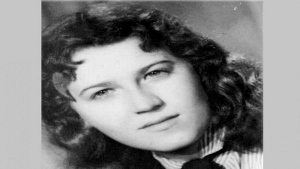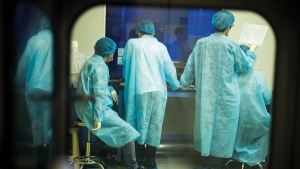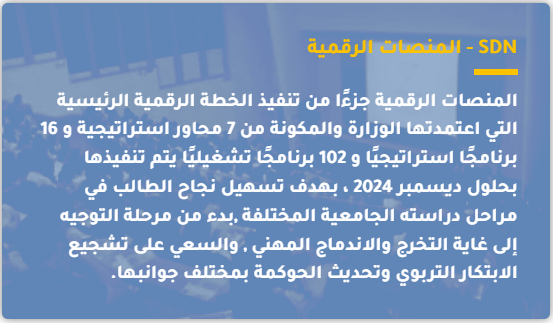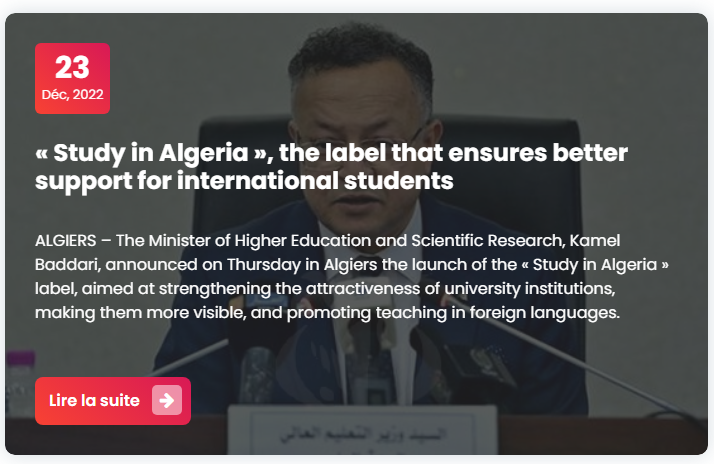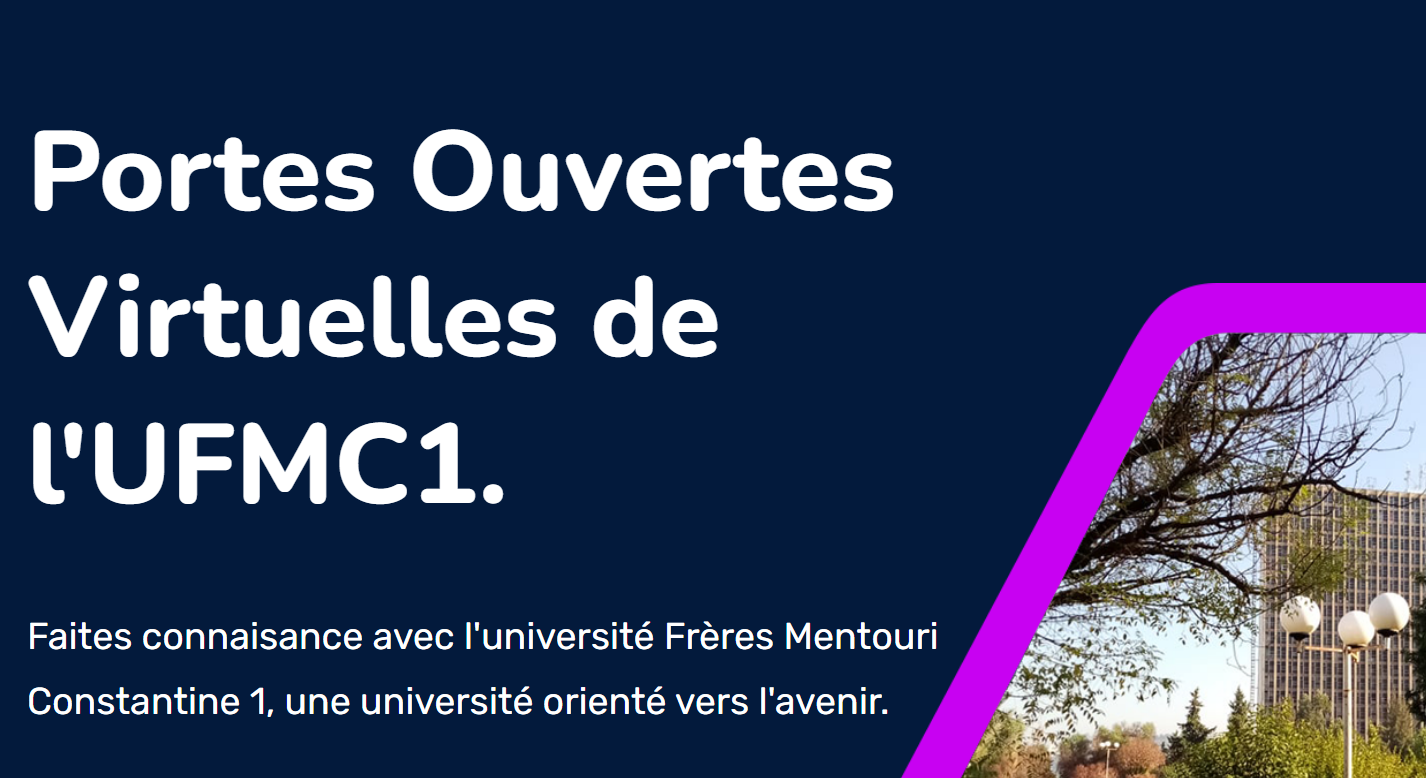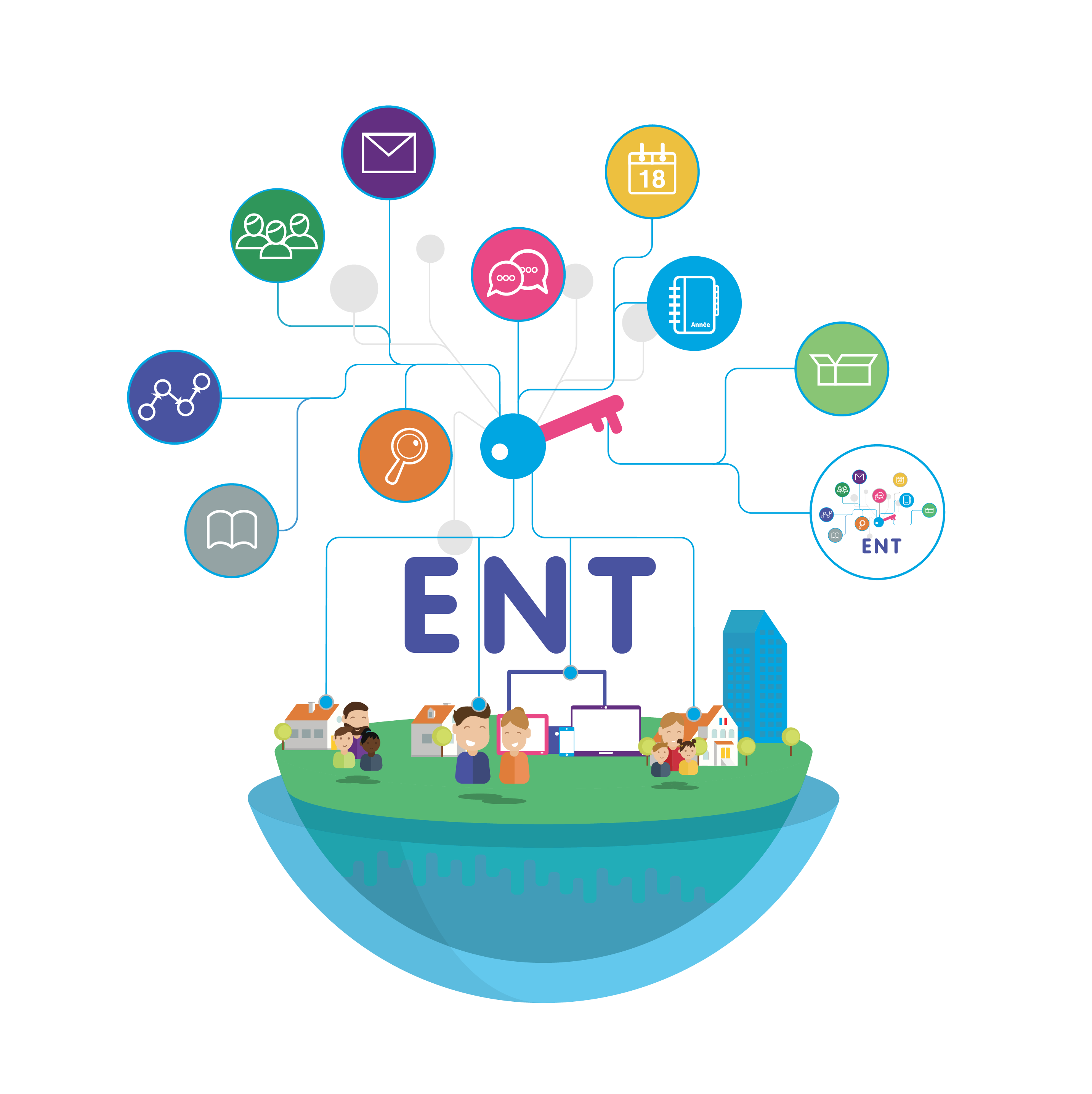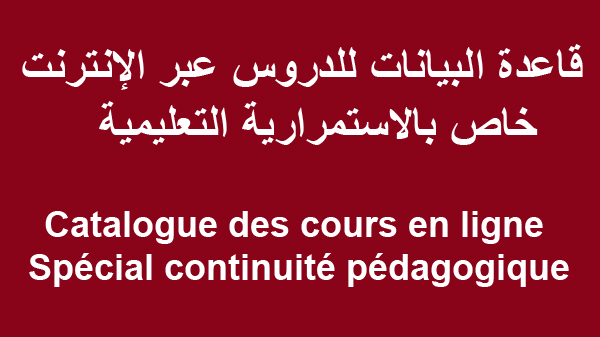Hassiba Benbouali, thème inaugural au nouveau CEM de Kalitoussa
Le parcours révolutionnaire de la chahida Hassiba Benbouali a été dimanche dernier le thème du cours inaugural de la nouvelle rentrée scolaire, donné au nouveau collège d'enseignement moyen (CEM) de la zone d'expansion Kalitoussa de la commune de Berrahal (Annaba).Ce cours a été suivi avec intérêt par les élèves et leurs parents ainsi que par les autorités de la wilaya dans le cadre de ce nouvel établissement baptisé du nom du chahid Hocine Guellil. Les parents d'élèves présents ont exprimé à l'occasion leur satisfaction en ce début d'année scolaire quant à l'ouverture de ce nouveau CEM et au choix judicieux, estiment-ils, du thème de la Révolution pour la première journée de l'année scolaire. Ils ont été 136.911 élèves à rejoindre les classes dimanche dernier à travers la wilaya d'Annaba dont 71.715 en primaire et près de 6546 en préscolaire.
La Rentrée Universitaire en chiffres
La rentrée universitaire 2016/2017, à l’université Frères Mentouri – Constantine1, se définit par les éléments suivants :
un nombre de 7402 nouveaux bacheliers inscrits sur un total de 7749 affectés, soit un pourcentage de 95,52 %. Les nouveaux bacheliers se sont inscrits dans 15 filières d’inscription dont 6 filières à recrutement national (formations d’excellence).
· Les formations dispensées à l’université Frères Mentouri-Constantine1, se déclinent en 59 parcours de formations licence dans différents domaines et filières et 105 parcours Master, et une formation classique en sciences vétérinaires.
· L’organisation en octobre 2016 du concours pour l’accès à 29 offres de formation doctorale dans différents domaines et filières avec 115 postes qui seront ouverts à la rentrée universitaire.
· L’ouverture d’un nouvel Institut des Sciences et Techniques Appliquées qui dispensera dans un premier temps une licence professionnelle en « Productique Mécanique et Industrialisation » de la filière Génie Mécanique. En outre, une nouvelle formation Master professionnelle dans la spécialité Administration locale sera ouverte à la prochaine rentrée dont les enseignements seront dispensés à distance.
· L’habilitation d’une nouvelle filière LMD et une nouvelle licence en « Sciences et technologies Alimentaires »viennent renforcer et diversifier les capacités de formation de l’Institut de l’Alimentation, de la Nutrition et de la Technologie Agro-alimentaire (INATAA).
· Cette rentrée universitaire connaîtra le renforcement de la relation Université – Entreprise pour une meilleure insertion professionnelle des diplômés, elle consiste à proposer le montage de nouvelles formations et parcours qui seront déclinés en compétences et métiers : Il s’agit des disciplines, telles que la logistique, les énergies renouvelables, la topographie, l’apiculture, la construction automobile et le soudage. Ces parcours sont élaborés en collaboration avec des universités européennes.
· La recherche à l’université Frères Mentouri – Constantine1, forte de 68 laboratoires et 03 unités de recherche, soutient la formation doctorale dans toutes ses filières. Dans ce volet, les 1700 enseignants chercheurs assurent aussi l’encadrement des parcours des formations masters. Une nouvelle mission sera assignée à la recherche pour prendre en charge une filière stratégique économiquement et socialement, qui est celle du blé dur. A noter que l’université Frères Mentouri – Constantine1, comme le secteur de l’agriculture de la Wilaya de Constantine dispose de beaucoup de moyens et de compétences pour entreprendre une dynamique de recherche sur le blé dur. A cet effet, tous les acteurs impliqués dans le domaine de la culture du blé dur, au niveau de la Wilaya de Constantine, seront en conclave la fin du mois de septembre 2016 pour élaborer un programme d’actions lié à la recherche sur cette céréale.
· Le recrutement des 75 nouveaux enseignants, auront à subir une formation et un accompagnement pédagogique universitaire, dont le contenu est défini par l’arrêté ministériel N° 932 du 28 juillet 2016. Ce programme de fomation sera suivi par l’organisation d’un séminaire sur l' ingénierie de formation, levier de l’employabilité.
· La cérémonie solennelle de la rentrée universitaire 2016/2017 sera inaugurée par la présentation d’un cours inaugural sur le thème : Les technologies des énergies renouvelables et société du futur.
· L’année universitaire 2016/2017 connaîtra aussi la construction d’un MOOC (cours en ligne ouvert et massif) dédié aux énergies renouvelables.
· Une série de cours et de conférences seront organisés au profit des étudiants et des doctorants sur l’éthique des sciences et le plagiat.
Il est à signaler que l’année universitaire 2015/2016 a connu la sortie de 7463 diplômés dans les 1er et 2ème cycles et la soutenance de 163 diplômés dans le 3ème cycle (Doctorat), ainsi que 84 diplômés en Magister.
Par ailleurs, et suite à l’inscription des nouveaux bacheliers le nombre total des étudiants qui fréquenteront à la rentrée universitaire 2016/2017, les six facultés et les deux instituts de cette université, sera de l’ordre 36500 étudiants.
Centre d'examens et des concours
CONCOURS D’ ENTRÉE AU DOCTORAT (LMD) A L’ UNIVERSITÉ DES FRÈRES MENTOURI - CONSTANTINE 1 : ANNEE 2016/2017
Le Samedi 15 Octobre 2016 L’Université des frères METOURI - Constantine lance l’appel d’offre national, par voie de concours le samedi U15 Octobre 2016 à 07:30U, aux candidatures d’entrée en Doctorats (3P èmeP cycle) dans les filières et spécialités indiquées ci-dessous. Les dossiers de candidature doivent être déposés et enregistrés (avec récépissé de dépôt) auprès des services de Post-Graduation des FACULTES et DEPARTEMENTS concernés du 06 septembre au 06 octobre 2016 (avant 12:00), délai de rigueur. Lieu de dépôt des dossiers : Secrétariat de la Post-Graduation ’’Service Doctorat LMD’’, DEPARTEMENT (suivant la spécialité) et FACULTÉ (suivant la filière) selon les campus, UNIVERSITE DES FRERES MENTOURI – CONSTANTINE1 – ROUTE D’AIN EL BEY CONSTANTINE 25017.
China’s bid to be a DNA superpower
First China conquered DNA sequencing. Now it wants to dominate precision medicine too.
Article tools
Six years ago, China became the global leader in DNA sequencing — and it was all down to one company, BGI. The Shenzen-based firm had just purchased 128 of the world's fastest sequencing machines and was said to have more than half the world's capacity for decoding DNA. It was assembling an army of upstart young bioinformaticians, collaborating with leading researchers worldwide and publishing the sequences of creatures ranging from ancient humans to the giant panda. The firm was quickly gaining a reputation as a brute-force genome factory — more brawn than brains, said some. Six years later, the scene is quite different. BGI's most famous scientist and visionary leader, Jun Wang, left last July. The machine that had given the company its dominance is outdated, and the firm's attempt to develop its own industrial-scale whole-genome sequencer hit a roadblock last November, forcing it to lay off employees at its US subsidiary. Meanwhile, the competing system — Illumina's X series — has been selling briskly, raising the speed and dropping the price of sequencing worldwide. Nature special: Science in China Armed with the latest sequencers, rival companies to BGI have emerged. Most prominent of these is Novogene in Beijing, founded in 2011 by former BGI vice-president Ruiqiang Li. And although BGI might not have the uncontested dominance it once did, it still claims to have the world's largest sequencing capacity as well as major scientific ambitions — including to sequence the genomes of one million people, one million plants and animals and one million microbial ecosystems. Today, China is being reborn as a sequencing power with a broader base. Fuelling the drive is a multibillion-dollar, 15-year precision-medicine initiative, which China announced in March and which rivals a similar initiative in the United States. If these efforts fulfil their goals, doctors envision being able to use a person's genome and physiology to pick the best treatments for his or her disease. The goal now for sequencing companies is to turn the bounty of genomic data into medical benefits. To do that, sequence data alone are not enough — so some Chinese companies are going beyond brute-force sequencing to work out how lifestyle factors such as diet are also important for understanding disease risk and for finding therapies. “The thing about China is the ambition they have for their precision-medicine programme is orders of magnitude larger than the United States',” says Hannes Smárason, chief operating officer and co-founder of WuXiNextCODE, a genomics company in Cambridge, Massachusetts, that is part of Shanghai-based WuXi AppTec. “They are dynamic and receptive. There, the idea of integrating of genomics into health care is very real.” Rise of the machine The new energy behind sequencing is largely thanks to one machine: Illumina's HiSeq X Ten, so called because it is generally sold as sets of ten units. When the machine hit the market in 2014, one set was able to sequence a human genome for close to US$1,000, and power through some 18,000 human genomes per year. Companies that wanted to rival BGI saw an opportunity — and leapt. Novogene was the first. Following a model similar to BGI's, Li has been building up a large staff of bioinformaticians to generate and interpret sequence data as part of collaborative basic-research projects on the snub-nosed monkey (Rhinopithecus roxellana)1, cotton (Gossypium hirsutum)2 and other plants and animals. Using the same machine, a handful of other companies — including WuXi PharmaTech and Cloud Health, both in Shanghai — focus more on offering sequencing as a service to pharmaceutical or personal-genomics companies. Source: NHGRI The growth is accelerating. Novogene added a second X Ten set in April, and Cloud Health chief executive Jason Gang Jin says that the company will add another two sets this year. By the end of the year, China will probably have at least 70 units. (Illumina says that 300 units were sold worldwide by the end of last year.) BGI has been trying to keep pace. In 2013, it purchased Complete Genomics in Mountain View, California, in a bid to create its own advanced sequencing machines for in-house use and for sale. The firm announced a system called Revolocity, its attempt to match the HiSeq X, last June. But in November, having taken just three orders, it suddenly suspended sales. BGI is now left with its ageing fleet of 128 Illumina HiSeq 2000 machines and a mélange of newer sequencers from various companies, including its own.Orientations pour les Cas particuliers du bac 2016
توجيهات حول حالات خاصة لحاملي بكالوريا 2016
ليكن في علم حاملي بكالوريا 2016 و الذين لم يقوموا بالتسجيلات الأولية أو النهائية و الجزائريين الحاصلين على البكالوريا الأجنبية أو الراغبين في التحويل أن هناك إجراءات خاصة للتكفل بهم حسب الحالات التالية :
1. عدم القيام بالتسجيلات الأولية :
وضعت تحت تصرفكم خلية استقبال على مستوى وزارة التعليم العالي و البحث العلمي لإيداع طلبات التسجيل و حدد آخر أجل لهذه العملية يوم 10 سبتمبر 2016 مع العلم أن الملف يجب ان يكون مدعما بطلب يتضمن مبرر التأخر في التسجيل .
2. عدم القيام بالتسجيلات النهائية (تم توجيهه إلى جامعة قسنطينة 1 لكنه لم يقم بإيداع ملف التسجيل ) :
في هذه الحالة يجب على المعني تقديم ملف التسجيل المتمثل في : أصل شهادة النجاح المؤقتة للبكالوريا ، صورتان شمسيتان ، حقوق التسجيل ، و يرفقه بطلب يتضمن مبرر التأخر في التسجيل . و يكون ذلك على مستوى خلية الإعلام ببهو عمارة الآداب ابتداء من يوم 4 سبتمبر 2016 إلى غاية 14 سبتمبر 2016 .
3. الجزائري الحامل للبكالوريا الأجنبية :
في الفترة الممتدة من 14 الى 20 سبتمبر يجب على المعني التقرب من المؤسسة المرغوب التسجيل فيها وبحوزته ملف التسجيل المتمثل في : أصل شهادة النجاح المؤقتة للبكالوريا ، صورتان شمسيتان ، حقوق التسجيل ، أصل شهادة المعادلة ، بطاقة الرغبات (تسحب و تملا في عين المكان ).
4. بكالوريا خاصة ثانوية بوعمامة :
تطبق عليهم نفس الإجراءات و يخضعون لنفس شروط التسجيل المذكورة آنفا .
5. التحويلات الخاصة بحاملي بكالوريا 2016 (التحويلات بين الأقسام و التحويلات بين الجامعات : في حدود الخريطة الجغرافية للجامعة ، التحويلات خارج حدود الخريطة الجغرافية للجامعة) :
تتم هذه العمليات جميعها في الفترة الممتدة ما بين 14 بين و 17 سبتمبر 2016 و حصريا عبر الخط بواسطة الأرضية المخصصة للتحويل باستخدام الحساب الذي تم منحه لكل طالب خلال فترة التسجيلات النهائية .
نتائج هذه العملية تكون ابتداء من يوم 20 سبتمبر 2016 عبر الخط .
Transferts ( baccalauréats antérieurs à 2016)
إعــلان خاص بعملية التحويلات
نعلم كافة الطلبة القدامى(الحاصلين على بكالوريا قبل 2016 ) ، أنه قد تم تحديد فترة التحويلات (التحويل ما بين الأقسام ، التحويل ما بين الكليات ، التحويل بين الجامعات) من 30 أوت 2016 إلى غاية 15 سبتمبر 2016 .
مكونات ملف طلب التحويل:
ü التحويل ما بين الأقسام و التحويل ما بين الكليات:
1. نسخة عن كشف نقاط البكالوريا
2. نسخة عن بطاقة الطالب
3. استمارات التحويل على ثلاث نسخ (يتم تحميلها من موقع جامعة الإخوة منتوري قسنطينة 1 : www.umc.edu.dz)
ü التحويل ما بين الجامعات
1. نسخة من كشف نقاط البكالوريا
2. نسخة من كشوف نقاط المسار الدراسي
3. مبرر التحويل ( وصل الكهرباء و الغاز في حالة تغيير الإقامة ، ... )
4. استمارات التحويل على ثلاث نسخ تسحب من الجامعة الأصلية
5. شهادة التسجيل في الموسم الجامعي 2016/2017 و شهادة حسن السيرة.
تودع طلبات التحويل على مستوى الكلية أو/ الأقسام المستقبلة في حدود المدة الزمنية المحددة : 30 أوت-15 سبتمبر 2016.
الإعلان عن النتائج يكون في 22 سبتمبر 2016
التسجيلات النهائية من 25 سبتمبر 2016 إلى غاية 29 سبتمبر 2016، تاريخ غلق عملية التسجيلات النهائية.
ملاحظة
خلية الإعلام و التوجيه على مستوى عمارة الآداب تتكفل بكل القضايا و بالانشغالات الإدارية و البيداغوجية لكل الطلبة .
CALENDRIER DE LA RENTRÉE 2016/2017
I. Activités d’enseignement :
· Inscriptions pédagogiques et réinscriptions : du 30 août au 15 septembre 2016.
· Début des cours (L1-L2-L3 et M2) : dimanche 18 septembre 2016
· Début des TD/TP (L1-L2-L3 et M2) : dimanche 25 septembre 2016
II. Transferts des nouveaux bacheliers 2016 (Circulaire 2016 et Note N°514 DGEFS)
· Dépôt des demandes en ligne (plateforme PROGRES) : du mercredi 14 jusqu’au 17 septembre 2016
· Annonce des résultats par le MESRS : mardi 20 septembre 2016
· Inscriptions : dimanche 25 septembre 2016.
III. Autres cas de transferts ( baccalauréats antérieurs à 2016):
· Dépôt des demandes de transferts aux départements et facultés : du mardi 30 août au jeudi 15 septembre 2016.
· Traitement et étude des dossiers : mercredi 14 septembre au mercredi 21 septembre 2016
· Annonce des résultats : jeudi 22 septembre 2016
· Inscriptions : du dimanche 25 septembre 2016 au jeudi 29 septembre 2016.
Téléchargements:
Demande de transferts entre Départements
Demande de transferts entre Facultés
Demande de transferts entre Universités
IV. Transferts de mobilité (L2 - L3) – Conférence régionale EST :
· Traitement des demandes – CRUEst : jeudi 22 septembre 2016
· Annonce des résultats : du Dimanche 25 septembre 2016 au jeudi 29 septembre 2016
· Inscriptions : du lundi 26 septembre au jeudi 29 septembre 2016.
V. Inscriptions Masters 1 (M1)
· Réception des dossiers : du 28 aout au 08 septembre 2016
· Traitement et étude des dossiers : 11-18 septembre 2016
· Annonce des résultats : 20-22 septembre 2016
· Recours : 25-26 septembre 2016
· Inscriptions : 25-29 septembre 2016.
· Début des cours : dimanche 02 octobre 2016.
VI. Organisation du concours d’accès aux formations doctorales : 15 octobre 2016.
VII. Examens 1er semestre : du 15 janvier 2017 au 02 février 2017
VIII. Début du 2ème semestre : le dimanche 5 février 2017
CONCOURS D’ ENTRÉE AU DOCTORAT (LMD) A L’ UNIVERSITÉ DES FRÈRES MENTOURI - CONSTANTINE 1 : ANNEE 2016/2017
Le Samedi 15 Octobre 2016 L’Université des frères METOURI - Constantine lance l’appel d’offre national, par voie de concours le samedi U15 Octobre 2016 à 07:30U, aux candidatures d’entrée en Doctorats (3P èmeP cycle) dans les filières et spécialités indiquées ci-dessous. Les dossiers de candidature doivent être déposés et enregistrés (avec récépissé de dépôt) auprès des services de Post-Graduation des FACULTES et DEPARTEMENTS concernés du 06 septembre au 06 octobre 2016 (avant 12:00), délai de rigueur. Lieu de dépôt des dossiers : Secrétariat de la Post-Graduation ’’Service Doctorat LMD’’, DEPARTEMENT (suivant la spécialité) et FACULTÉ (suivant la filière) selon les campus, UNIVERSITE DES FRERES MENTOURI – CONSTANTINE1 – ROUTE D’AIN EL BEY CONSTANTINE 25017.
Nouveaux Bacheliers 2016
Cher bachelier… Toutes nos félicitations !
Et bienvenue dans la communauté universitaire !
Télécharger circulaire additive n° 02 du 30 juin 2016
Etape 1:Après l'annonce des résultats du bac,
- Adresse-toi à ton Lycée. On te remettra ton attestation du baccalauréat à travers laquelle tu prendras connaissance de ton NUMÉRO PERSONNEL (en bas de page), qui te servira lors de ta préinscription
- Prends connaissance des informations mises à ta disposition dans le Guide du Bachelier et dans la Circulaire. Nous te conseillons à cet effet, d'installer l'application TASJILCOM, disponible dans l'espace de téléchargement, sur ton smartphone. Tu pourras également utiliser, les versions Flash du Guide et Hypertexte de la Circulaire, sur un P.C; ou encore les versions pdf de ces deux documents.
Etape 2- Après la lecture attentive des documents, tu procéderas à ta préinscription du mardi 19 au jeudi 21 juillet 2016.
Cette phase consiste à remplir ta fiche de vœux et à la déposer, en ligne, à partir de l'adresse suivante : http://www.orientation.esi.dz
Cette opération peut être effectuée là où existe une connexion à l'Internet. Cependant nous te recommandons de rejoindre à cet effet les salles prévues dans tous les établissements universitaires, tu y trouveras disponibilité, conseils, assistance et accès gratuit à l'Internet.
Etape 3: du vendredi 22 au dimanche 24 juillet 2016
Tu dois ensuite confirmer ta préinscription. Il t'est permis aussi de modifier ta précédente fiche de vœux.
Dans ce cas, c'est la deuxième fiche de vœux qui est prise en considération pour ton orientation.
Cas particulier : du dimanche 31 juillet au mardi 02 août 2016
Cas particulier des filières soumises à test d'aptitude ou entretien:
Si tu a choisi des filières soumises à test d'aptitude ou entretien, n'oublie pas de te renseigner auprès des établissements concernés, sur la date précise des épreuves . En effet, il ne te faudra pas risquer de perdre une ou plusieurs formations possibles, du fait d'un chevauchement éventuel d'épreuves. Tes résultats te seront communiqués au plus tard 48 heures avant la clôture des inscriptions définitives.
Etape 5: du jeudi 04 au mardi 09 août 2016
Inscription définitives :
Après avoir pris connaissance de votre affectation, Vous devez procéder à l’inscription définitive.
Etape 4: du dimanche 31 juillet au mardi 02 août 2016
Affectations et recours seront établis en ligne.
Tu peux s'il le faut, introduire un recours dans le cas où aucun de tes six choix n'a été retenu.
Au cas où tu es déclaré non admis, tu seras réorienté dans l'un des autres choix portés sur ta fiche de voeux. L'établissement d'accueil en première affectation est chargé de la procédure de la réorientation.


